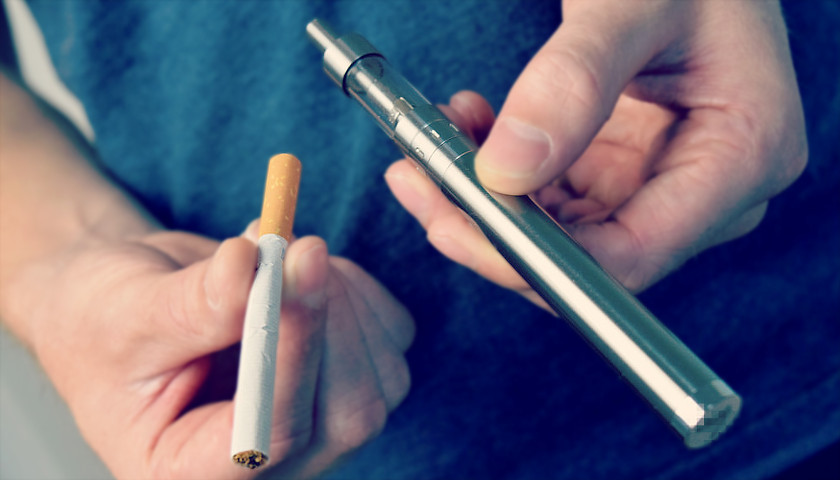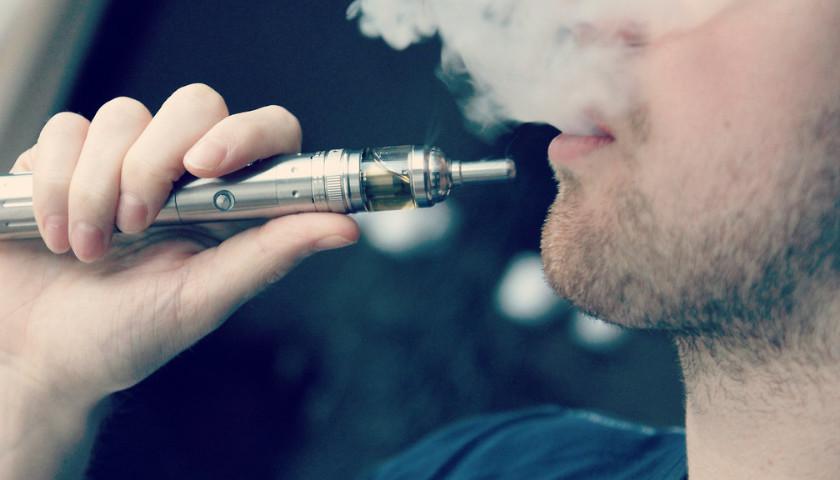by Dimitris Agrafiotis
This week, Tennessee lawmakers will be considering legislation to increase the purchase age of vapor products to 21. But if we are really concerned about improving Tennessee’s health, we need our policy makers to create laws that recognize the significant difference between traditional cigarettes and vaping products.
The scientific community has overwhelmingly determined that vapor products are less harmful than traditional combustible tobacco. First and most importantly, e-cigarettes and other vapor products contain no tobacco. So they should not be legislated the same way.
What causes lung cancer, COPD, heart disease and stroke in smokers is lighting tobacco on fire and breathing in the products of combustion – thousands of different chemical compounds – over many years that kills smokers.
Vaping, on the other hand, does not involve burning – which means no smoke. And because there is no smoke, vaping doesn’t produce the harmful elements cigarettes do, like carbon monoxide or tar.
You don’t have to take my word for it.
Here’s what Dr. Scott Gottlieb, Director of the Food and Drug Administration (FDA), tweeted out: “E-cigs can help currently addicted adult smokers quit; and improve their health.” The American Heart Association in a statement to adult smokers, said e-cigarette use “presents an opportunity for harm reduction if smokers use them as substitutes for cigarettes.”
Vaping products can help smokers quit for good. A recent landmark study, published in the prestigious New England Journal of Medicine, found vape products were twice as successful than traditional quit methods (like the patch) in helping smokers quit.
This is why the Tennessee Smoke Free Association is speaking up. We represent almost 100 small businesses that sell vapor products aimed to help adult smokers switch.
Much of the concern stems from attempts to prevent youth from accessing these products. We need to be smart about how we approach this. The FDA’s own data presents a picture that majority of underage purchases come from straw sales, convenience stores, gas station and drug stores.
In 2018, FDA inspections for underage sales yielded some interesting results. There were 104 violations for a selling to a minor, for vape products. Of those, 96 were issued a warning letter and 8 were issued a civil money penalty. Of the 104 violations, only 3 of the violations were by a vape shop. These 3 shops received a warning letter. None of the members of our association were cited in any of these violations.
So rather than punishing adult smokers looking for help or raising the age limit on a legal product, let’s focus on an actual solution— improving enforcement. We believe our legislators should be talking about how to control the point of sale of sale with tighter enforcement, which would have a real impact on curbing the usage of products by youth.
If our end goal is to improve public health, why would you deny an 18-year-old the option of switching to a less harmful alternative like vaping— particularly when the average age a person starts smoking can be as early as 13? How can we possibly tell a five-year addicted combustible tobacco user at age 18 to wait another three years till they reach the legal age in order to transition away from the most deadly product on the market?
Vapor products are technology products, a consumer-born solution to the tobacco addiction problem. Raising the age of vapor products will only harm public health and continue to burden an already heavily stressed health care system in our state.
– – –
Dimitris Agrafiotis serves as Executive Director of the Tennessee Smoke Free Association, a consumer advocacy and trade organization focused on Tobacco Harm Reduction (THR) through the use of vapor products (electronic cigarettes). Find him on Twitter as @VapinGreek.
Photo “Smoking v. Vaping” by Vaping360 CC2.0.






Sure sounds to me like a very short sighted and biased analysis.
What do the users of these devices actually consume? Probably not peppermint extract.